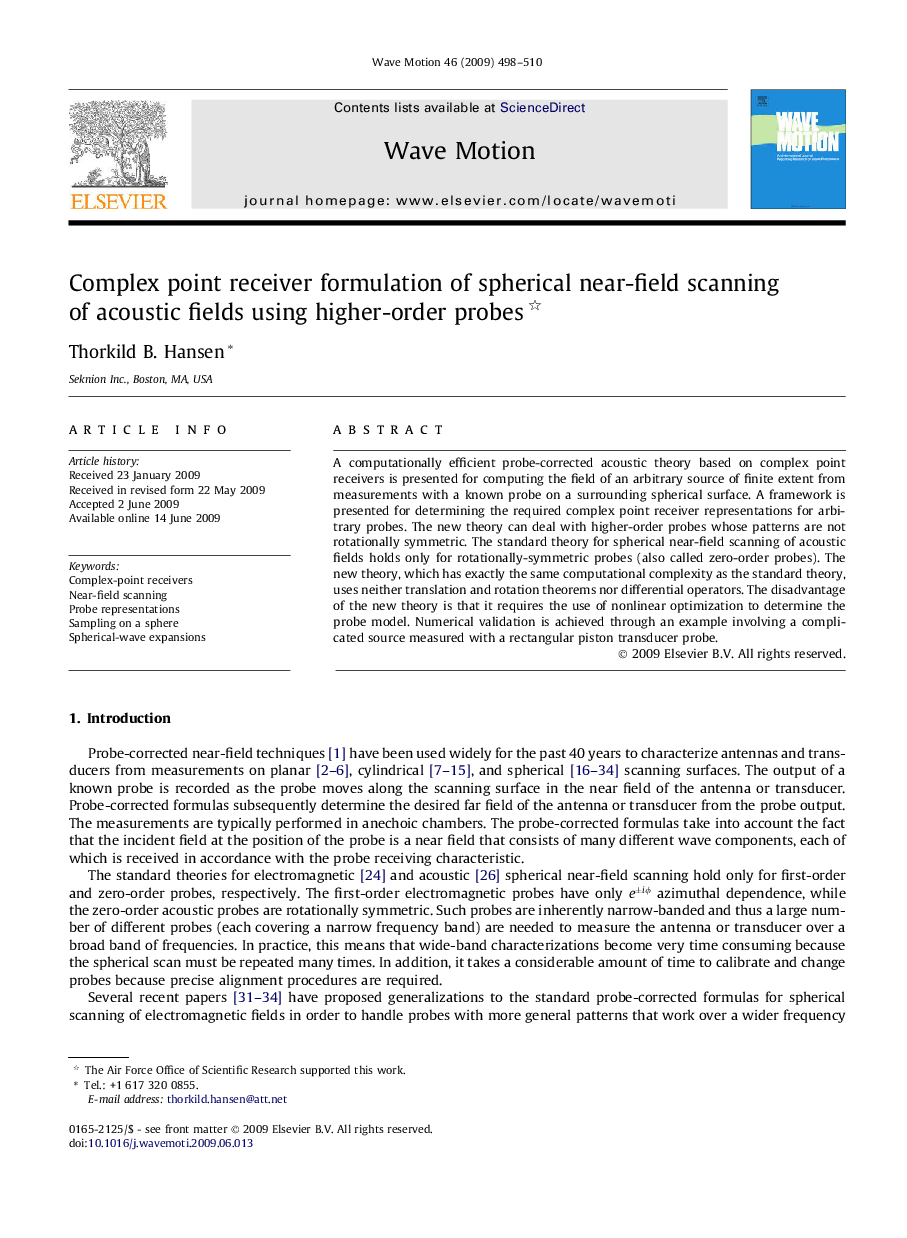| Article ID | Journal | Published Year | Pages | File Type |
|---|---|---|---|---|
| 1900773 | Wave Motion | 2009 | 13 Pages |
Abstract
A computationally efficient probe-corrected acoustic theory based on complex point receivers is presented for computing the field of an arbitrary source of finite extent from measurements with a known probe on a surrounding spherical surface. A framework is presented for determining the required complex point receiver representations for arbitrary probes. The new theory can deal with higher-order probes whose patterns are not rotationally symmetric. The standard theory for spherical near-field scanning of acoustic fields holds only for rotationally-symmetric probes (also called zero-order probes). The new theory, which has exactly the same computational complexity as the standard theory, uses neither translation and rotation theorems nor differential operators. The disadvantage of the new theory is that it requires the use of nonlinear optimization to determine the probe model. Numerical validation is achieved through an example involving a complicated source measured with a rectangular piston transducer probe.
Related Topics
Physical Sciences and Engineering
Earth and Planetary Sciences
Geology
Authors
Thorkild B. Hansen,
